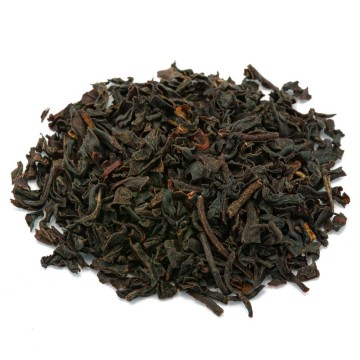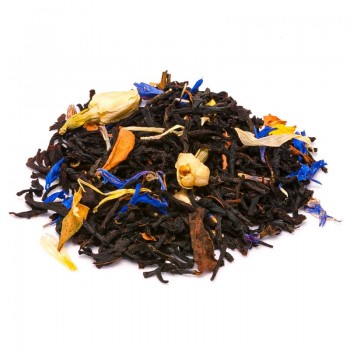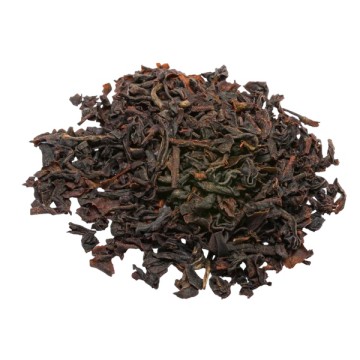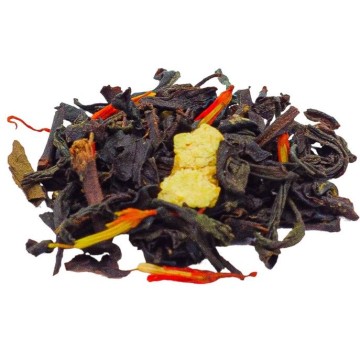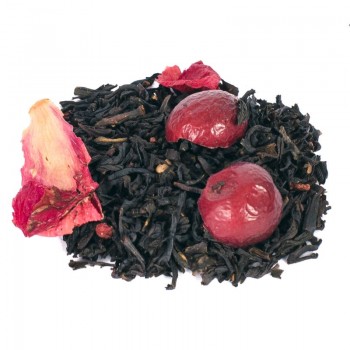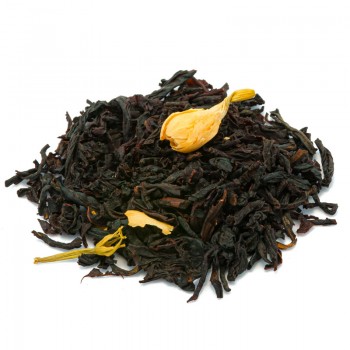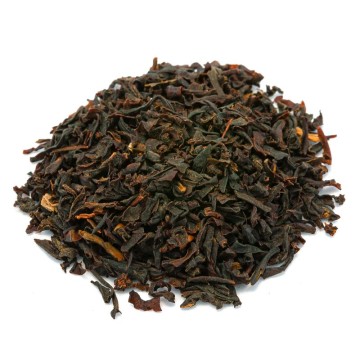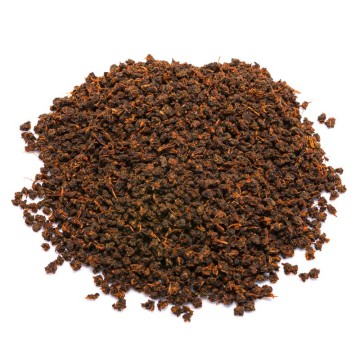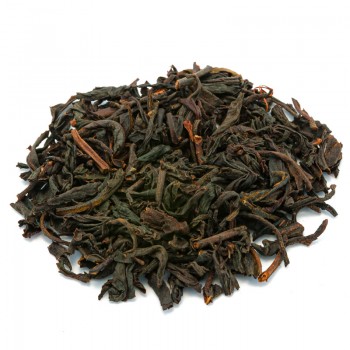This particular black tea is delicious, a fragrant creation that includes at first sip the gourmet flavors of pistachio and the spicy ones of pink pepper and cardamom. Its soft character recalls a soft pistachio brittle, with a sweet and enveloping aroma - ideal for welcoming sweets and desserts, at tea time and in any tasty break. The blend offers sweet and spicy flavor notes, slightly pungent, perfect to accompany apple pies, apricots, lemon biscuits, ginger biscuits, amaretti and dried fruit.
The scent of pistachio and natural aromas meets the balsamic nuances of cardamom (evoking honey, rose and lemon); as well as the fresh ones of pink pepper (reminiscent of honey and juniper berries). A combination that immerses you in a refined atmosphere, which simultaneously evokes the fragrances of the Mediterranean and those of India.
In fact, every detail is combined with the powerful and intense base of the particular Indian Assam black tea, known for its rich, robust and malty flavor, with hints of Indian spices. It is considered a tea with an energetic taste, due to its naturally abundant caffeine content.
Assam black tea what are its properties?
Among the benefits associated with this variety, there is its high content of antioxidant plant compounds including theaflavins, thearubigins and catechins. These elements can play a role in resisting the action of free radicals - chemical substances that can damage our cells and promote the aging process. The antioxidants contained in black tea help counteract the negative effects of free radicals. Assam black tea promotes digestive well-being, the growth and maintenance of healthy intestinal bacteria for proper transit of food. The assimilation of food is also favored by spices, which relieve an irritated intestine and reduce bloating.
The leaves of this tea have a relatively high amount of tannins. In addition to giving the dark and vibrant brownish colors to the infusion, these compounds have astringent properties useful for the well-being of the stomach and to relieve the symptoms of indigestion.
The content of antioxidants, polyphenols and catechins also helps in body weight management; together with caffeine it stimulates the metabolism and promotes diuresis (against water retention and bloating). The polyphenolic compounds present in black tea can help reduce cholesterol. Black tea flavored with pistachio also helps to enhance antioxidants, polyphenols and tocopherols. In addition, a pinch of pink pepper helps in hot Assam black tea to promote the well-being of the nose and throat, during the cold season.
Nutritional values of pistachio-flavored black tea
It has components such as antioxidant polyphenols - flavonoids, catechins, flavanols. It makes nutrients available such as minerals (fluoride, iron, zinc, magnesium and potassium), B vitamins, enzymes. It makes tannins and amino acids available, including the L-theanine molecule and alkaloids that include caffeine (theine) and theophylline.
How to make black tea infusion
It is simply prepared with hot water at 90/95 °C, in which to infuse 3-5 grams of the mixture every 250 ml (one cup). Let it steep for 3 to 5 minutes and the drink is ready.
How to buy black tea with pistachio?
Our online spice and tea shop allows you to get loose black tea with pistachio, in convenient packs of 25 g, 50 g, 75 g, 100 g, 150 g, 300 g. The freshness-preserving packaging of loose Assam tea allows you to calculate exactly how many grams of product you need for your cup or teapot.
The variety of Assam black tea
The origin of this tea comes from the Camellia sinensis plant - a species formed by small evergreen trees, belonging to the Theaceae family. Of this plant there is the variety called Camellia sinensis var. assamica (Camellia assamica) which, unlike Camellia sinensis, is more robust and produces wider and harder leaves (leathery) – suitable for the production of black teas and oolong teas. This variety was born in the state of Assam, located in the north-eastern part of India, where it has been traditionally cultivated for centuries. An exceptional territory, given that it has a 100% native local tea plant - a gift shared only with southern China. Assam is one of the largest tea producing regions in the world, full of crops, natural parks, forests; it is crossed by the Brahmaputra, a river that originates in Tibet and crosses the Himalayan mountains.
The famous Assam is obtained from the leaves of Camellia assamica, a variety of black tea known for its particular flavor and its processing, which naturally favors the presence of caffeine / theine. The unique production process of Assam tea involves the collection andwithering with the consequent oxidation process. The leaves are exposed to oxygen in a temperature-controlled environment to promote chemical changes that lead to the release of some beneficial and aromatic plant compounds.
Assam is a black tea much appreciated in England and Ireland for breakfast, for its strong taste, which goes well with eggs, bacon, tomatoes. Furthermore, compared to other black teas, Assam blends perfectly with milk, sugar and lemon to choose how to flavor it.
What side effects and contraindications can black tea have
Although tea consumption is considered safe for adults, some side effects may appear due to the caffeine content (theine). How much black tea can you drink per day? Side effects occur if tea is consumed in excessive quantities, so it is useful to keep the intake to moderate levels (3-4 cups maximum). Excessive caffeine intake may cause agitation, rapid heartbeat, insomnia, nausea, headache and stomach pain. Caution is advised in the dose for pregnant and breastfeeding women.

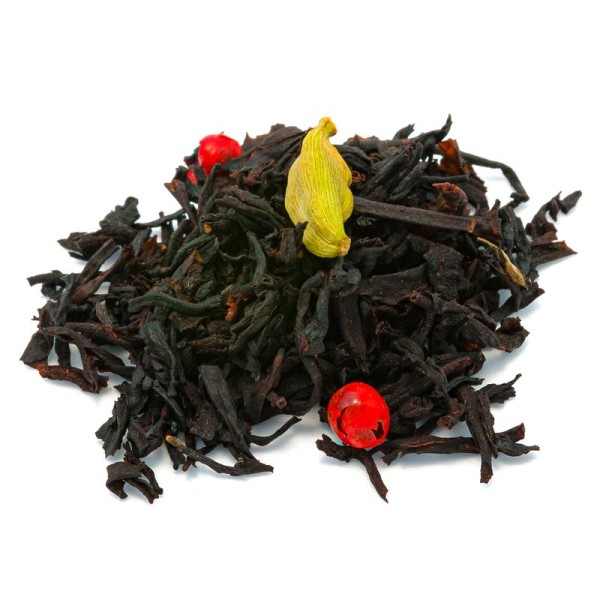









 No reward points for this product.
No reward points for this product.
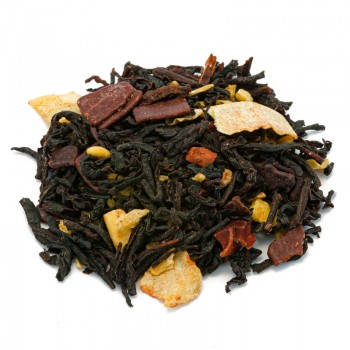
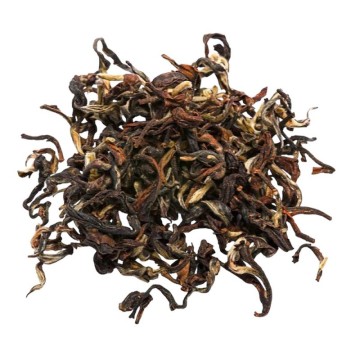
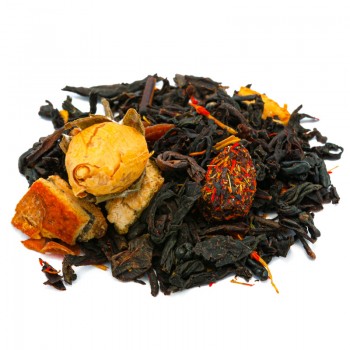

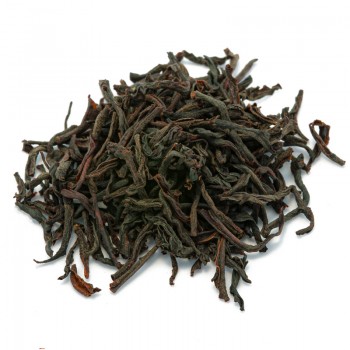
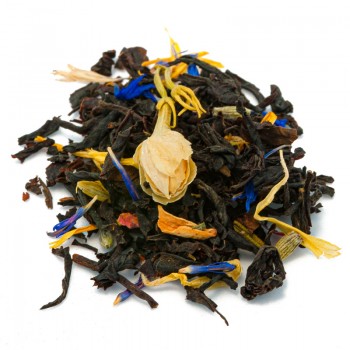
![black tea Irish Rum [Natura d'Oriente]](https://www.naturadoriente.com/3388-home_default/black-tea-irish-rum-.jpg)
